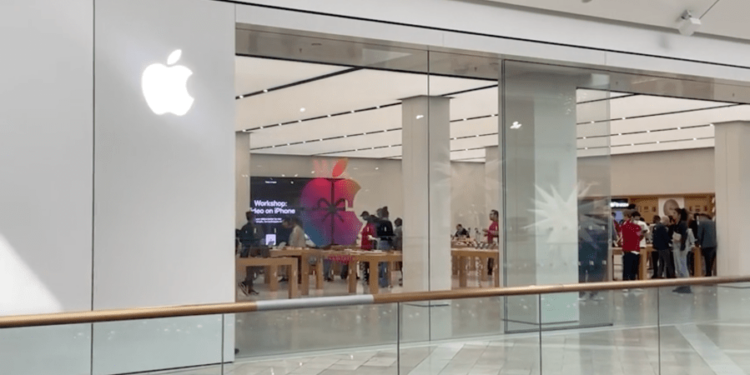
Another package has been reportedly intercepted in Los Angeles County, making it the third expensive laptop delivery to be stolen in Southern California this November.
This time, however, rather than swiping it in front of a consumer’s home – the thief went a few steps further.
“I ordered a laptop online and I did it for in-store pick up because I didn’t want it to get stolen,” the consumer, Rick Markowitz, told KTLA’s Jennifer McGraw on Saturday. “And I said, ‘Hey, I’m here for my in-store pickup,’ and immediately they go, ‘Your laptop was already picked up sir,’ and I’m like, ‘What are you talking about? I’ve never come to pick it up.’”
Markowitz now says he’s out $4,000 after the imposter picked up his computer from an Apple store in Sherman Oaks on Tuesday.
While he was still at the store, Markowitz says he asked the staff if he was hacked.
“They said, ‘Well, we don’t know if you were hacked or not, but we’re saying someone with an ID with your name on it came in and picked up the laptop.’”
Markowitz filed a police report and then, deciding to do some research of his own, he went online to see if this incident had happened to anyone else recently.
In his searches, he found KTLA’s report from Nov. 28 about a thief who police believe posed as a customer, showed an ID to the delivery person, and then walked off with someone else’s package – in two separate instances.
“And I’m like, wait, am I the third incident of someone who has a laptop intercepted and tracked specifically from Apple?” posed Markowitz. “And mine was in-store, which is crazy.”
Unlike the other two instances, security footage was not immediately available for Markowitz’s case. However, the similarities between each of the three incidents raise concerns for residents, as well as experts.
“In essence, this is identity theft,” claims Randy Sutton, a retired police lieutenant and crime prevention specialist who believes these victims have been hacked.
“Making a fake ID is a walk in the park, especially when you’re dealing with people who are sophisticated,” says Sutton.
He says in these three cases, scammers likely hacked the victims’ cell phones, getting the tracking information and potentially making an identification card.
Police did not immediately say whether this incident is believed to be connected to the other two Southern California cases.
To see if your phone has been hacked, Sutton advises consumers to visit malwarefox.com, a website that he says lists “all of the different methodologies used to compromise your information.”
And Markowitz, who thought he was doing everything right, is hoping to warn shoppers.
“Now as a result, I have to beg and kick and scream up the Apple ladder just to get them to give me a refund for the laptop that was never handed to me,” Markowitz said.
Sutton says in these cases, the credit card companies commonly take the brunt of the fraud, and generally, consumers are usually reimbursed.






